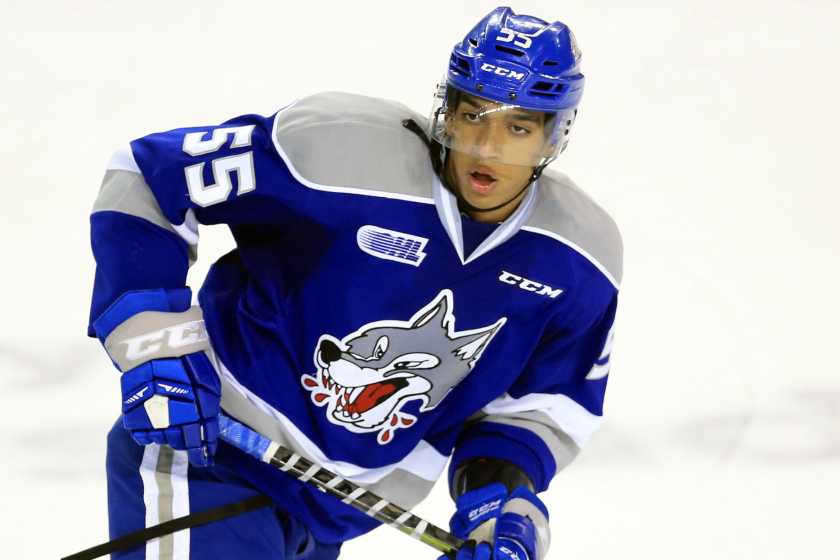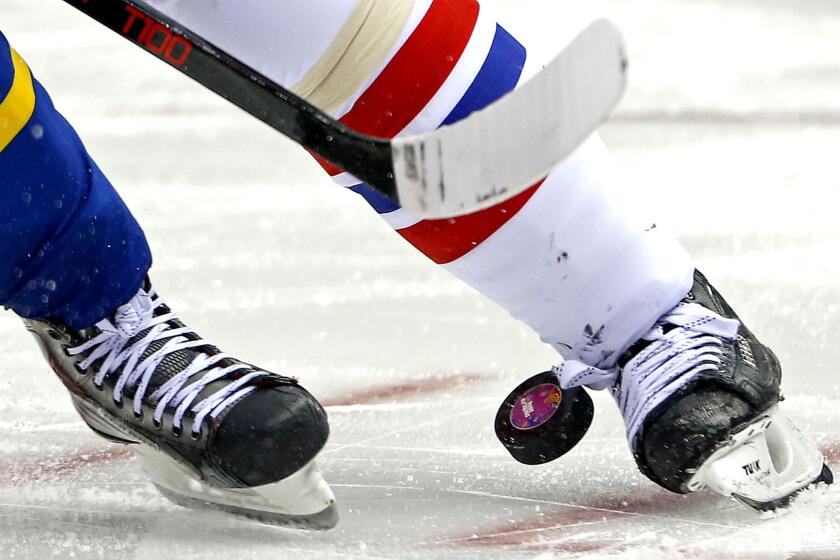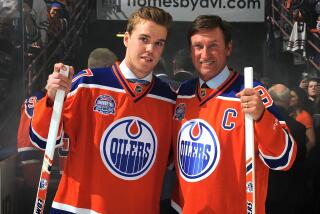Distinguished NHL broadcaster Mike ‘Doc’ Emrick announces his retirement
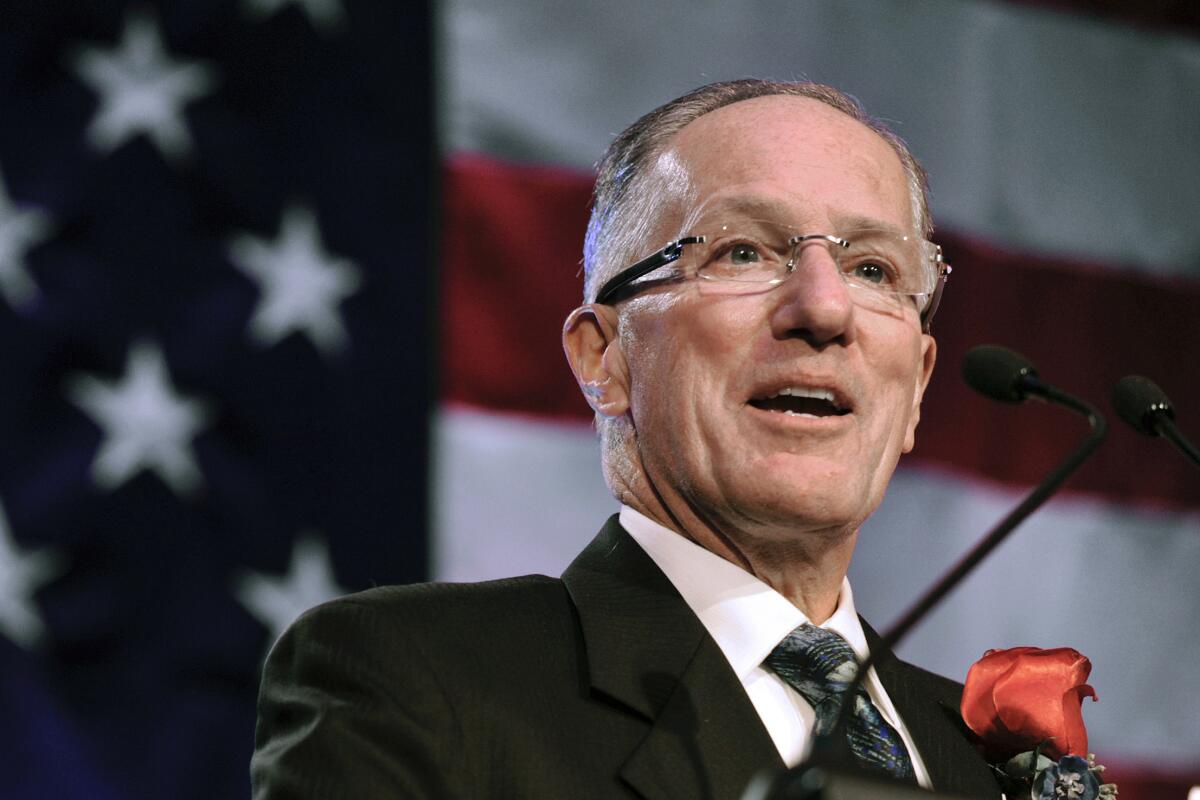
Mike “Doc” Emrick mixed folksy wisdom with professional artistry, bringing to his hockey play-by-play calls the enthusiasm of someone who couldn’t quite believe he was given a prime seat for games and the eye of a natural storyteller. When NBC’s longtime and distinctive voice of hockey announced his retirement on Monday he said he had no regrets and hoped only that viewers and hockey fans remember him fondly and “with an appreciation of the sport as a result” of his work.
Emrick, 74, said he’s in good health but realized he had reached “the autumn of your years” and wants to enjoy that good health with his wife, Joyce, and their menagerie of pets. Emrick said he and his wife plan to devote time to helping animals, usually in small ways such as paying veterinarians’ bills for those who can’t afford to pay for their pets’ care.
“It seemed like it was time,” Emrick said as he discussed his retirement during a conference call with reporters. “I guess 50 was a round number in covering the league. … This is the time for turning to other things, including helping people with the animals. There’s no other back story, no other thing. This is it.”
Quinton Byfield, the No. 2 overall pick by the Kings in the 2020 NHL draft, has signed his rookie contract with the team.
Emrick broadcast the recently completed Stanley Cup playoffs from his home in Michigan instead of working on site in the NHL’s playoff bubbles in Edmonton and Toronto. He said the difficulties of calling games remotely were minimal — seeing the far-side winger was as challenging when he was in the rink as it was when he watched on a TV monitor — and he primarily missed being able to see line changes. He still loved doing his work, but his thoughts increasingly turned toward retirement, though his broadcasts didn’t reflect any distractions in his thinking.
“I was told by people that have retired that you would know when, and in the middle of the playoffs this year, probably between rounds 2 and 3, I realized it was the time,” said Emrick, who will contribute video essays to future NBC telecasts of NHL games. His autobiography, “Off Mike,” is scheduled to be published on Tuesday.
Emrick’s hockey career began as a writer for the Beaver County (Pa.) Times in the 1970-71 season. He had been unsuccessful in finding a broadcasting job after sending out tapes he had done while watching minor-league games in Fort Wayne, Ind., so he took a job teaching public speaking and supervising the campus radio station at Geneva College. He taught on Tuesdays and Wednesdays but hadn’t given up his broadcasting dreams. “I went to the editor of the daily newspaper and said, ‘I’ll cover the Penguins for free if you get me a pass,’” Emrick recalled. The editor knew a good deal when he heard one.
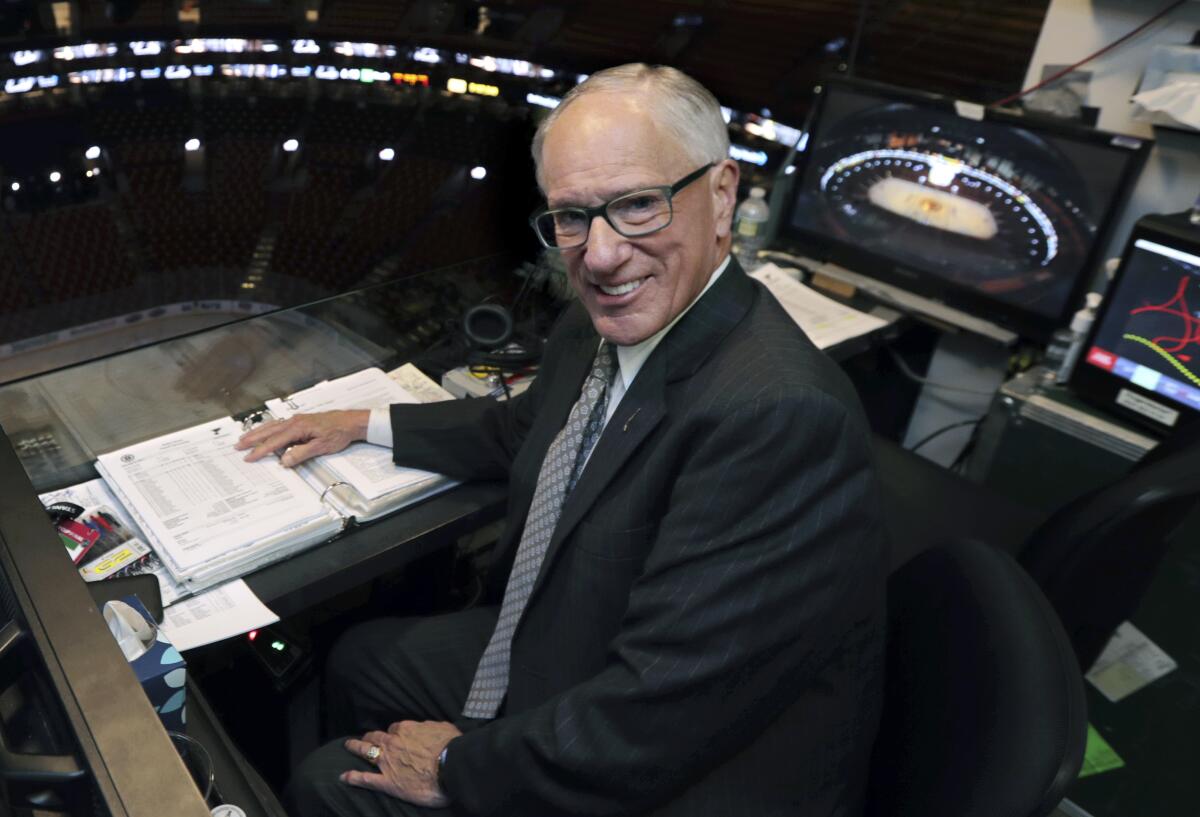
That launched a career in which he called college and minor-league hockey before, eventually, 22 Stanley Cup Finals, 14 NHL All-Star Games, and six Olympics. He was the first broadcaster inducted into the U.S. Hockey Hall of Fame and won eight Emmy Awards.
NHL Commissioner Gary Bettman was one of several guests who paid tribute to Emrick on the media call on Monday. “You have been a magnificent representative of hockey the past 50 years. I just want to thank you for all the incredible energy and effort you’ve given our fans,” Bettman said. “Personally and professionally we’re going to miss you. You are just a treasure.”
Broadcaster Al Michaels — a Los Angeles resident and longtime Kings fan — thanked Emrick for calling the Kings’ 2012 and 2014 Stanley Cup triumphs and joked that Emrick should leave “some of his unused verbs” for Michaels to use in his Sunday Night Football broadcasts. Michaels also thanked Emrick for making hockey relatable and bringing fans to the game.
A single infected hockey player managed to spread the coronavirus to at least 12 others during a match-up that highlights the challenges of containing COVID-19.
Ed Olczyk, one of Emrick’s broadcast partners, became emotional when speaking of Emrick and said he had cried after learning of Emrick’s decision to retire. “We all thank you for your passion, your love for the game, your appreciation and love for people,” Olczyk said, his voice breaking.
Emrick credited his mentor, longtime Fort Wayne (Ind.) Komets announcer Bob Chase, for molding his philosophy and urging Emrick to be himself on the air. Emrick said he wished he hadn’t aimed for perfection in his early broadcasts because it’s simply impossible, and doing that took away from developing his broadcast style. He used to give himself grades for each broadcast, he said, often issuing himself Ds or Fs.
“I’ve never done a perfect game out of those 3,700 or whatever it is,” he said. “I had to relax, enjoy the fact that I was given a free seat, a good seat, and I got to work with some of the best athletes in the world and then twice a month I got something in the mail and it was really good.”
So was he.
More to Read
Go beyond the scoreboard
Get the latest on L.A.'s teams in the daily Sports Report newsletter.
You may occasionally receive promotional content from the Los Angeles Times.

